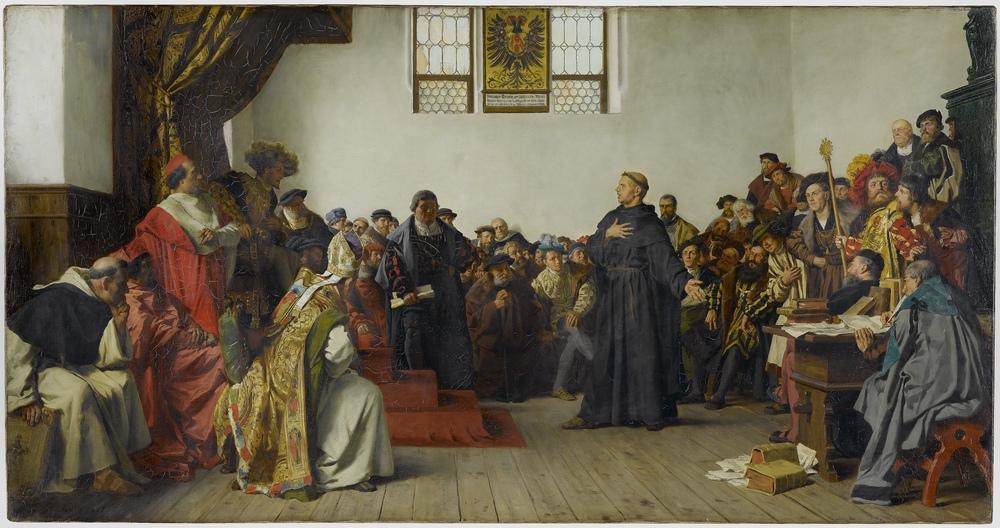
This week in 1521 saw the opening of the Diet of Worms: the great meeting of the princes of the Holy Roman Empire to address the turmoil created by Martin Luther. Luther was a clergyman and professor who had repeatedly criticized the Church and attacked its doctrines. His aggressive and outspoken writings had found sympathetic ears across Germany and the rest of the empire, striking fear in the Catholic establishment. Emperor Charles V presided over the Diet, in the city of Worms in the German Rhineland, and he summoned Luther to answer for his views. Luther naturally feared that attending the Diet would lead to his death, but his patron and protector, Elector Frederick III of Saxony, negotiated safe passage to and from the meeting.
The princes, who included many of Germany’s great bishops, demanded that Luther renounce his attacks on the Church. Luther refused, so the Diet condemned him. On May 25, the emperor issued the Edict of Worms: “[W]e forbid anyone from this time forward to dare, either by words or by deeds, to receive, defend, sustain, or favor the said Martin Luther. On the contrary, we want him to be apprehended and punished as a notorious heretic, as he deserves, to be brought personally before us …, whereupon we will order the appropriate manner of proceeding against the said Luther. Those who will help in his capture will be rewarded generously for their good work.”
Worse for Luther, his opponents privately agreed to breach the safe conduct and arrest him as he left Worms. But Elector Frederick rescued his client, staging a pretended attack on Luther on the road, “abducting” him, and spirting him away to the safety of Wartburg Castle. There, Luther lived on under the Elector’s protection and continued his written attack on the Catholic Church. His influence soared, launching Protestant movement across Europe.
Luther at the Diet of Worms, painting by Anton von Werner (1877)

0 Comments